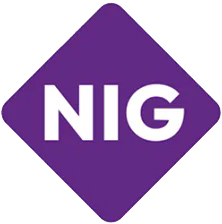We compare quotes from leading insurers
Protect Your Oceanographic Programs Business with Specialist Insurance Coverage
Protecting Marine Research and Oceanographic Excellence
Oceanographic programs face unique and complex risks that standard commercial insurance policies simply cannot address. From multi-million pound research vessels navigating treacherous waters to sensitive deep-sea equipment operating at crushing depths, marine research institutions require specialized insurance coverage that understands the intricacies of oceanographic studies.
At Insure24, we recognize that oceanographic programs represent some of the most challenging and valuable scientific endeavors on our planet. Whether you're conducting climate research in the Arctic, mapping ocean floors with advanced sonar systems, or studying marine ecosystems with remotely operated vehicles (ROVs), your work demands insurance protection as sophisticated as your research methods.
Our oceanographic programs insurance is specifically designed for research institutions, universities, government agencies, and private organizations conducting marine science research. We understand that a single equipment failure thousands of meters below the surface can result in catastrophic financial losses, delayed research timelines, and compromised scientific objectives.
Comprehensive Coverage for Oceanographic Operations
- Research Vessel Protection - Complete coverage for oceanographic research vessels, including hull and machinery, navigation equipment, scientific instruments, and specialized modifications. Protection extends to vessels operating in international waters and extreme weather conditions.
- Deep-Sea Equipment Insurance - Specialized coverage for ROVs, AUVs, submersibles, deep-sea cameras, sonar systems, sediment corers, and other oceanographic equipment. Includes protection against pressure damage, saltwater corrosion, and equipment recovery costs.
- Scientific Data Protection - Comprehensive cyber insurance covering data collection systems, research databases, satellite communications, and digital storage. Protects against data loss, cyber attacks, and system failures that could compromise years of research.
- Professional Indemnity for Marine Scientists - Protection for oceanographers, marine biologists, and research staff against claims arising from professional advice, research findings, environmental assessments, and consultation services.
- International Expedition Coverage - Worldwide coverage for research expeditions, including emergency evacuation, medical expenses, equipment transportation, customs delays, and political risk insurance for operations in sensitive regions.
- Environmental Liability - Protection against claims for environmental damage, marine pollution, disturbance to marine ecosystems, and regulatory violations. Essential coverage for programs working in protected marine areas.
- Business Interruption - Coverage for lost research time, additional expedition costs, equipment rental, and ongoing expenses when operations are disrupted by covered perils. Includes seasonal weather delays and equipment breakdowns.
- Third-Party Liability - Protection against claims from other vessels, port authorities, environmental groups, and coastal communities. Covers collision damage, pollution liability, and interference with commercial fishing operations.
Understanding Oceanographic Program Risks
Equipment and Technology Risks
- Deep-sea equipment failure under extreme pressure
- Saltwater corrosion of sensitive instruments
- ROV and AUV loss or damage during deployment
- Sonar and navigation system malfunctions
- Submersible structural failures
- Equipment recovery costs from ocean depths
- Technology obsolescence during long-term projects
Operational and Environmental Risks
- Severe weather and storm damage
- Ice damage in polar research regions
- Collision with marine life or debris
- Grounding in shallow or uncharted waters
- Fire or explosion on research vessels
- Crew injury in remote locations
- Emergency evacuation costs
Data and Cyber Security Risks
- Loss of irreplaceable research data
- Cyber attacks on research networks
- Satellite communication system failures
- Data storage system corruption
- Unauthorized access to sensitive research
- Intellectual property theft
- System downtime during critical research phases
Regulatory and Compliance Risks
- International maritime law violations
- Environmental protection regulation breaches
- Permit and licensing issues
- Customs and import/export complications
- Marine protected area violations
- Research ethics and protocol breaches
- International sanctions and political risks
Why Choose Insure24 for Oceanographic Programs Insurance
- Specialized Marine Research Expertise - Our team understands the unique challenges of oceanographic research, from deep-sea equipment specifications to international research protocols. We work with leading marine science institutions worldwide.
- Worldwide Coverage - Comprehensive protection for research operations anywhere in the world's oceans, including polar regions, international waters, and politically sensitive areas. Our global network ensures support wherever your research takes you.
- Equipment Replacement Guarantees - Fast-track equipment replacement programs ensure minimal disruption to research schedules. We maintain relationships with specialized marine equipment suppliers for rapid deployment of replacement instruments
- 24/7 Emergency Support - Round-the-clock emergency assistance for vessel breakdowns, equipment failures, and crew emergencies. Our marine specialists provide immediate support for critical situations at sea.
- Flexible Policy Terms - Policies adapted to research schedules, seasonal operations, and project-specific requirements. Coverage can be adjusted for expedition-based research or year-round operations.
- Risk Management Services - Comprehensive risk assessment and management services, including safety protocol reviews, equipment maintenance programs, and crew training recommendations to minimize exposure.
Getting Your Oceanographic Programs Insurance
- 1. Initial Consultation - Contact our marine insurance specialists to discuss your oceanographic program requirements. We'll assess your research activities, equipment, vessels, and operational scope.
- 2. Risk Assessment - Our experts conduct a comprehensive risk evaluation of your operations, including equipment valuations, operational territories, crew requirements, and research methodologies.
- 3. Customized Quote - Receive a detailed insurance proposal tailored to your specific oceanographic program needs, with transparent pricing and comprehensive coverage explanations.
- 4. Policy Implementation - Once approved, we implement your coverage with immediate effect. Our team provides comprehensive policy documentation and emergency contact procedures.
- 5. Ongoing Support - Continuous policy management with regular reviews, coverage updates for new equipment or operations, and dedicated claims support when needed.
Regulatory Compliance and Standards
Oceanographic programs must navigate complex international regulations and standards. Our insurance coverage is designed to ensure compliance with all relevant maritime, environmental, and research regulations.
- International Maritime Organization (IMO) - Full compliance with IMO safety standards, including SOLAS, MARPOL, and STCW conventions for research vessel operations and crew certification requirements
- Environmental Protection Standards - Coverage aligned with international environmental protection laws, marine sanctuary regulations, and biodiversity conservation requirements.
- Research Ethics and Protocols - Insurance coverage that supports adherence to international research ethics standards, data sharing protocols, and scientific integrity requirements.
- Data Protection and Privacy - GDPR-compliant coverage for research data handling, international data transfer protocols, and privacy protection for sensitive marine research information.

Insure24's understanding of international research operations was crucial when we faced regulatory challenges in Antarctic waters. Their support team resolved complex compliance issues quickly and professionally.
Dr. Maria Rodriguez. Climate Research FoundationWhy Choose Insure24 for Oceanographic Programs Insurance?
- Specialist Knowledge - We understand the unique risks facing Oceanographic program operators
- Comprehensive Coverage - Multiple insurance products designed to work together
- Competitive Pricing - Tailored quotes based on your specific venue and operations
- Expert Support - Dedicated team available when you need us most
- Quick Claims - Fast response when incidents occur
- FCA Regulated - Authorized and regulated by the Financial Conduct Authority
Protect Your Oceanographic Program Business with Specialist Insurance Coverage
Get Your Oceanographic Programs Insurance Quote Today
Don't leave your oceanographic programs exposed to unnecessary risks.
Our specialist team will assess your venue's unique needs and provide a comprehensive insurance solution that protects your business, your customers, and your livelihood.
Call us now: 0330 127 2333
Or get an instant online quote at insure24.co.uk
FREQUENTLY ASKED QUESTIONS
+-
What types of oceanographic equipment are covered?
Our coverage includes ROVs, AUVs, submersibles, deep-sea cameras, sonar systems, sediment corers, CTD sensors, underwater acoustic equipment, marine sampling devices, and all specialized oceanographic instrumentation. Coverage extends to equipment operating at any depth.
+-
Does coverage extend to international waters?
Yes, our oceanographic programs insurance provides worldwide coverage including international waters, exclusive economic zones, and operations in polar regions. We ensure compliance with international maritime law and territorial regulations.
+-
What happens if equipment is lost at extreme depths?
Our policy includes specialized recovery coverage for equipment lost at depths up to 11,000 meters. If recovery is not feasible, we provide full replacement value coverage and expedited equipment procurement to minimize research delays.
+-
Are research vessels covered during transit between research sites?
Absolutely. Coverage includes vessel protection during all phases of operation: transit to research sites, on-station research activities, equipment deployment and recovery, and return voyages. Port risks and dry-dock periods are also covered.
+-
How does cyber insurance protect oceanographic data?
Our cyber coverage protects research databases, satellite communication systems, navigation data, and all digital research assets. Coverage includes data recovery, cyber attack response, system restoration, and protection against intellectual property theft.
+-
What professional indemnity coverage is provided for marine scientists?
Coverage includes protection against claims arising from research findings, environmental assessments, consultation services, peer review activities, and professional advice. We cover legal defense costs and damages for professional negligence claims.
+-
Are multi-year research expeditions covered?
Yes, we provide flexible coverage terms for long-term research projects, including multi-year expeditions. Policies can be structured to accommodate seasonal operations, equipment rotations, and changing research objectives over extended periods.
+-
What environmental liability protection is included?
Our environmental liability coverage protects against claims for marine ecosystem disturbance, accidental pollution, habitat damage, and regulatory violations. Coverage extends to cleanup costs, fines, and third-party environmental damage claims.
+-
How quickly can damaged equipment be replaced?
We maintain relationships with specialized marine equipment suppliers worldwide. Standard replacement timeframes range from 24-72 hours for common instruments to 2-4 weeks for highly specialized equipment, depending on location and availability.
+-
Are collaborative international research projects covered?
Yes, our coverage extends to joint research ventures, international collaborations, and multi-institutional projects. We can coordinate coverage with international partners and ensure seamless protection across different jurisdictions.
+-
What crew and personnel coverage is provided?
Coverage includes crew medical expenses, emergency evacuation from remote locations, personal accident insurance, and repatriation costs. We also cover additional crew costs due to expedition delays or emergency replacements.
+-
How does business interruption coverage work for research programs?
Business interruption coverage compensates for lost research time, additional expedition costs, equipment rental, ongoing salaries, and facility costs when operations are disrupted by covered perils such as equipment failure or severe weather.
+-
Are there restrictions on operating areas?
We provide coverage for operations in all ocean basins, including high-risk areas such as polar regions, seismically active zones, and politically sensitive waters. Some areas may require additional premium or specific risk mitigation measures.
+-
What documentation is required for claims?
Claims documentation includes incident reports, equipment damage assessments, research logs, weather reports, and repair estimates. Our claims team works closely with research institutions to streamline the documentation process.
+-
Can coverage be adjusted for seasonal research operations?
Absolutely. We offer flexible policy terms that can be adjusted for seasonal research patterns, ice-free periods in polar regions, and weather-dependent operations. Premium adjustments reflect actual operational periods.
+-
How are new technologies and equipment additions handled?
Our policies include automatic coverage for newly acquired equipment up to specified limits. Major equipment additions can be added to the policy with immediate coverage, ensuring continuous protection as research capabilities expand.
+-
What support is available for regulatory compliance?
We provide regulatory compliance support including permit assistance, environmental impact assessments, safety protocol reviews, and liaison with maritime authorities. Our expertise helps navigate complex international regulations.
+-
Are there coverage options for student research programs?
Yes, we offer specialized coverage for educational oceanographic programs, including student expeditions, training cruises, and university research vessels. Coverage addresses the unique risks associated with educational marine research activities.
+-
How does the claims process work for remote ocean locations?
Our 24/7 claims hotline provides immediate support for incidents at sea. We coordinate with coast guards, salvage companies, and emergency services worldwide. Satellite communication ensures claims reporting from any location.
+-
What risk management services are included?
Risk management services include safety audits, equipment maintenance programs, crew training recommendations, weather routing advice, and emergency response planning. These services help prevent losses and optimize research operations.
+-
Can coverage be extended to shore-based research facilities?
Yes, our oceanographic programs insurance can include shore-based laboratories, equipment storage facilities, data centers, and research offices. This provides comprehensive protection for all aspects of your marine research operations.
+-
How are weather-related delays and cancellations covered?
Weather delay coverage includes additional vessel costs, crew expenses, equipment rental, and rescheduling costs due to severe weather conditions. Coverage recognizes the weather-dependent nature of oceanographic research.
+-
What happens if research permits are revoked or delayed?
Our political risk and regulatory coverage protects against permit delays, revocations, or changes in research regulations. Coverage includes additional costs, expedition delays, and alternative research site arrangements.
+-
Are there specific protections for climate research data?
Climate research data receives enhanced protection due to its long-term value and irreplaceable nature. Coverage includes specialized data backup systems, extended retention periods, and priority recovery services for climate datasets.
+-
How does coverage handle equipment shared between institutions?
Shared equipment arrangements can be covered through coordinated policies or consortium agreements. We work with multiple institutions to ensure seamless coverage regardless of which organization is operating the equipment.
+-
What emergency communication support is provided?
Emergency communication support includes satellite phone coverage, emergency beacon services, and coordination with maritime rescue services. We maintain 24/7 communication capabilities with research vessels worldwide.
+-
What is the average cost of oceanographic programs insurance?
Oceanographic programs insurance costs vary significantly based on equipment value, operational scope, and risk factors. Typical annual premiums range from £50,000 to £500,000 for comprehensive coverage. Factors affecting cost include vessel size, equipment value, operational areas, crew size, and research duration.
+-
Do I need separate insurance for underwater drones and ROVs?
Underwater drones and ROVs can be covered under oceanographic equipment insurance or as separate policies. Coverage includes theft, damage during deployment, pressure-related failures, and recovery costs. High-value ROVs often require individual scheduling with specific coverage limits.
+-
Is marine research insurance different from commercial marine insurance?
Yes, marine research insurance is specifically designed for scientific operations and includes coverage for specialized equipment, data protection, research delays, and international research permits. Commercial marine insurance typically focuses on cargo transport and commercial vessel operations.
+-
What insurance do I need for deep sea exploration projects?
Deep sea exploration requires comprehensive coverage including submersible insurance, deep-sea equipment protection, pressure vessel coverage, emergency recovery services, and specialized crew insurance. Coverage must extend to extreme depths and include equipment retrieval from abyssal zones.
+-
Are marine biology research expeditions covered under standard policies?
Standard commercial policies rarely cover marine biology research adequately. Specialized oceanographic insurance is essential for research vessels, specimen collection equipment, laboratory facilities, data storage, and international research compliance requirements specific to marine biology studies.
+-
How much does research vessel insurance cost per year?
Research vessel insurance costs typically range from 2-8% of vessel value annually, depending on size, age, operational areas, and equipment. A £5 million research vessel might cost £100,000-£400,000 annually to insure, including hull, equipment, and operational coverage.
+-
What happens if my oceanographic data is lost or corrupted?
Data loss coverage includes recovery services, re-collection costs, additional expedition expenses, and compensation for irreplaceable research data. Cyber insurance components protect against data breaches, system failures, and provide funding for data reconstruction efforts.
+-
Do I need insurance for Antarctic research operations?
Antarctic research requires specialized polar insurance covering extreme weather conditions, ice damage, emergency evacuation, environmental protocols, and compliance with Antarctic Treaty requirements. Standard policies exclude polar operations, making specialized coverage essential.
+-
What insurance covers marine archaeology expeditions?
Marine archaeology insurance covers underwater excavation equipment, artifact protection, site preservation, diving operations, cultural heritage liability, and compliance with underwater cultural heritage laws. Coverage includes specialized diving equipment and artifact recovery operations.
+-
Are climate change research projects covered differently?
Climate research projects often require enhanced data protection, long-term equipment coverage, multi-year expedition insurance, and specialized coverage for ice core sampling, atmospheric monitoring equipment, and weather station installations in remote locations.
+-
What insurance do universities need for marine research programs?
Universities need comprehensive coverage including student researcher protection, educational vessel insurance, campus marine laboratory coverage, equipment used in teaching, research vessel operations, and liability protection for student expeditions and field studies.
+-
How does insurance work for joint international research projects?
International joint projects require coordinated insurance across multiple jurisdictions, shared liability coverage, equipment sharing agreements, data sharing protection, and compliance with various national research regulations and international maritime laws.
+-
What coverage is needed for submersible operations?
Submersible operations require specialized coverage for pressure vessel certification, life support systems, emergency surfacing equipment, crew safety, deep-sea recovery operations, and compliance with international submersible safety standards and regulations.
+-
Do I need separate insurance for marine sampling equipment?
Marine sampling equipment can be covered under comprehensive oceanographic policies or separately. Coverage includes sediment corers, water samplers, plankton nets, CTD sensors, and specialized collection devices. High-value equipment may require individual scheduling.
+-
What insurance protects against marine pollution liability?
Marine pollution liability insurance covers accidental spills, fuel leaks, research chemical releases, ecosystem damage claims, cleanup costs, regulatory fines, and third-party environmental damage claims arising from research operations.
+-
Are there insurance requirements for marine protected area research?
Research in marine protected areas often requires enhanced environmental liability coverage, permit compliance insurance, ecosystem disturbance protection, and specialized coverage meeting the specific requirements of protected area management authorities.
+-
What does oceanographic equipment breakdown insurance cover?
Equipment breakdown coverage includes mechanical failure, electrical breakdown, pressure damage, corrosion damage, replacement costs, expedited shipping, temporary equipment rental, and business interruption due to equipment failures during critical research phases.
+-
How much does marine research liability insurance cost?
Marine research liability insurance typically costs £5,000-£50,000 annually depending on coverage limits, operational scope, and risk factors. Higher-risk operations or larger research programs may require higher premiums for adequate protection levels.
+-
What insurance covers ocean drilling and coring operations?
Ocean drilling insurance covers drilling equipment, core sampling devices, wellhead protection, environmental liability, equipment breakdown, crew safety, and specialized coverage for deep-sea drilling operations and sediment core collection activities.
+-
Do marine research stations need separate insurance coverage?
Marine research stations require specialized coverage for coastal facilities, laboratory equipment, data storage systems, boat docks, underwater cables, storm damage, and business interruption. Coverage differs significantly from standard commercial property insurance.
+-
What insurance covers marine robotics and autonomous vehicles?
Marine robotics insurance covers AUVs, underwater gliders, autonomous surface vehicles, navigation systems, sensor arrays, communication equipment, software systems, and recovery operations for lost or damaged autonomous marine research vehicles.
+-
Are there specific policies for coral reef research projects?
Coral reef research requires specialized coverage for diving operations, underwater photography equipment, coral sampling tools, marine biology equipment, environmental liability, and compliance with marine sanctuary regulations and coral protection laws.
+-
What insurance do marine conservation organizations need?
Marine conservation organizations need comprehensive coverage including research vessel protection, conservation equipment, volunteer liability, environmental restoration projects, public liability, professional indemnity, and specialized coverage for conservation activities.
+-
How does weather affect oceanographic insurance premiums?
Weather risk significantly impacts premiums, with operations in hurricane zones, polar regions, or monsoon areas requiring higher premiums. Seasonal operations, weather routing, and storm avoidance procedures can help reduce weather-related insurance costs.
+-
What coverage is needed for marine seismic research?
Marine seismic research requires specialized coverage for seismic equipment, acoustic arrays, data recording systems, environmental liability for marine life impacts, equipment towing operations, and compliance with marine mammal protection regulations.
+-
Are there insurance discounts for certified marine research programs?
Certified programs with ISO certifications, safety accreditations, environmental management systems, and crew training certifications may qualify for premium discounts. Regular safety audits and risk management programs can also reduce insurance costs.
+-
What insurance covers marine telescope and observatory equipment?
Marine-based astronomical equipment requires specialized coverage for precision instruments, environmental protection systems, salt air corrosion, storm damage, equipment calibration, and business interruption for observation programs and research schedules.
+-
Do I need insurance for marine renewable energy research?
Marine renewable energy research requires coverage for wave energy devices, tidal generators, offshore wind research equipment, mooring systems, underwater cables, environmental impact studies, and specialized liability for experimental energy systems.
+-
What insurance protects marine genetic research and biosampling?
Marine genetic research insurance covers biosampling equipment, specimen preservation systems, laboratory facilities, genetic databases, intellectual property protection, biosafety compliance, and specialized liability for genetic research activities and discoveries.
+-
How do I insure marine research conducted from space?
Satellite-based marine research requires specialized coverage for satellite systems, data transmission, ground stations, image processing equipment, and coordination with traditional marine research operations. Coverage includes satellite failure and data loss protection.


 0330 127 2333
0330 127 2333






